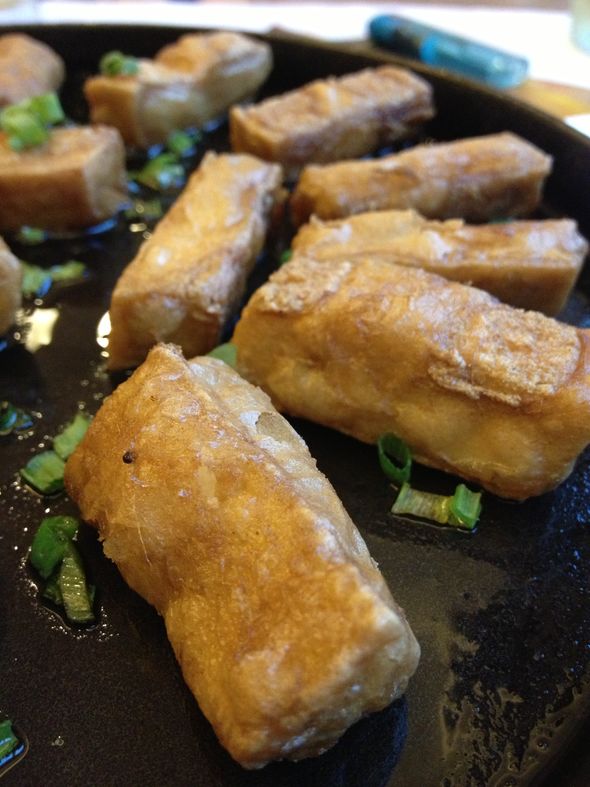The tough tofu quickly inflates in the heat of charcoal fire.
炭火的熱力讓堅硬的豆腐迅速膨脹。
It reminds people of fermented flour.
這很容易讓人聯想到發酵的面團。
People of Jianshui like enjoying this special air-dried and fermented flavor.
建水人很會享用這種由風干和發酵打造出的特殊味道。
People can enjoy the tofu with varied sauces.
蘸豆腐的調料各有不同。
But for Yao, the texture of tofu is the most important.
但是對姚貴文來說豆腐本身的質地才是最重要的。
Tofu easily ferments in the warm weather of the river valley area.
河谷地區的溫暖很容易讓豆腐發酵。
And the mildly dry air prevents it from rotting.
而適度的干燥,又讓它們不至于腐敗。

Yao is more sensitive than anyone else to the subtle relations between wind, water, sunshine and tofu.
對于風,水陽光和豆腐之間的微妙關系姚貴文比任何人都要敏感。
This is the famous Daban Well of Jianshui.
這里是建水最著名的大板井。
Beside the well, women set up a production line of tofu by just using their fingers.
在水井旁,女人們單靠手指的合作就構建起一條豆腐的流水線。
Water is a necessity in every procedure of making tofu.
做豆腐的各個環節,都和水密不可分。
With a total of 128 wells in Jianshui, local residents are well versed with water.
擁有128口水井的建水人很懂得水。
The Chinese believe water nourishes the spirit and mind of people.
中國人相信水能滋養人的靈性和覺悟。
Just like water to tofu, the common points speak for themselves.
這一點就仿佛水對豆腐的塑造,兩者間有一種不可言喻的共通。











